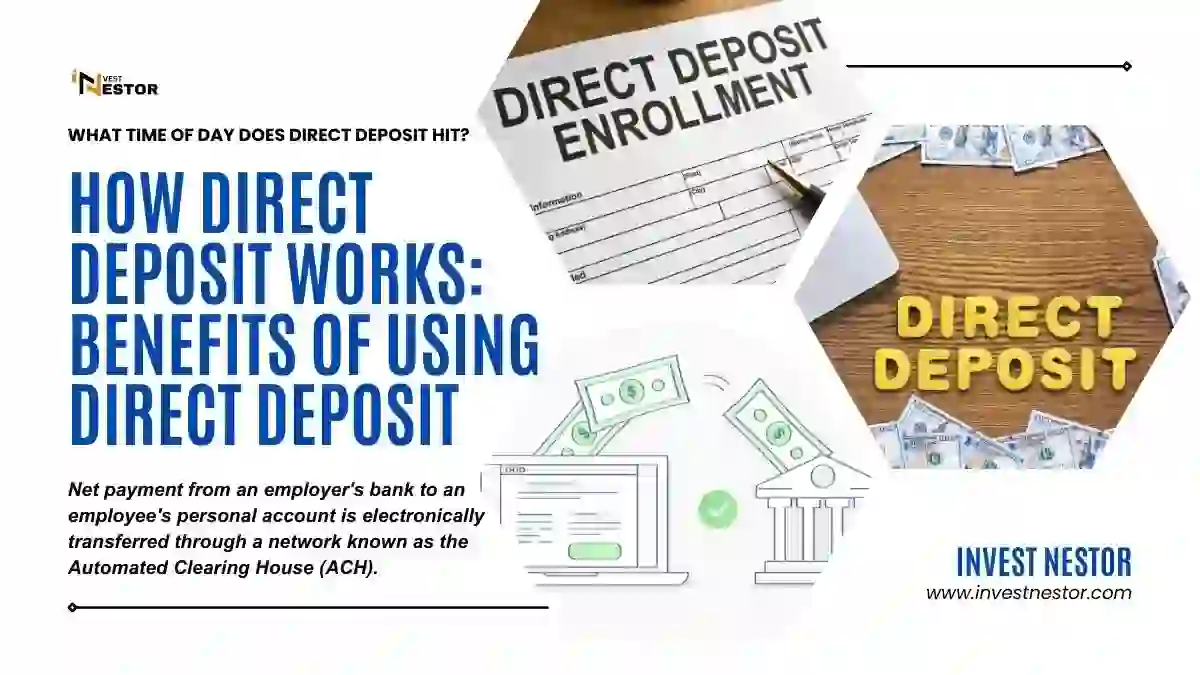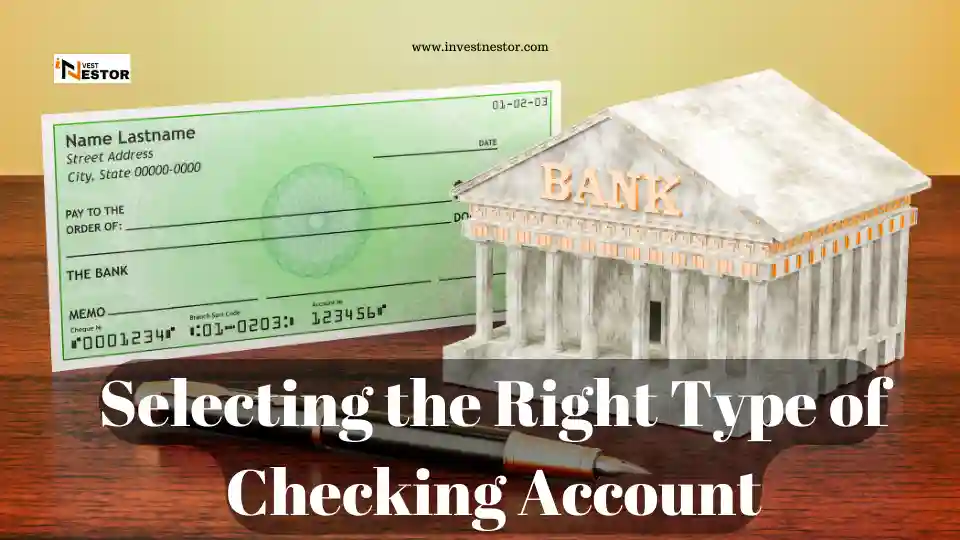
Set Up Direct Deposit: Social Security, Paychecks, and Tax Refund
Nowadays, the ease of doing financial transactions online is of paramount importance. Are you wondering, 'What is direct deposit?' Direct Deposit, a seamless way to access your money, ensures convenience and eliminates the need for physical checks. Direct Deposit is widely used due to its simplicity, instant cash availability, and flexible fund distribution. This article will provide the most straightforward explanation about Direct Deposit, its benefits, and how to set it up.
Key Highlights
If you want to access your funds as quickly as possible, several banks and challenger banks offer early direct deposit services.
Direct Deposit is safe and reliable for receiving recurring electronic payments like salaries, pensions, and government benefits.
If you accept direct deposits from overseas, it's essential to note that these transfers may take longer.
What is a Direct Deposit?
Companies can deposit paychecks directly into bank accounts instead of mailing checks. This lets you immediately access your money without having to deposit a physical cheque at the bank.
Direct Deposit makes receiving payments easy and speedy, eliminating the need for checks. You may quickly access your earnings by having your company deposit your paycheck straight into your bank account. Direct Deposit is safe and reliable for receiving recurring electronic payments like salaries, pensions, and government benefits.
How Does Direct Deposit Work?
Let's examine the procedure to understand how direct Deposit operates. Your bank gets in touch with the bank that issued the check when you deposit it into your account to confirm specific facts, such as the amount and availability of money. You may not have instant access to the funds throughout this verification procedure.
However, with direct Deposit, your money is electronically transferred to your bank by your company before payday. Your bank releases the funds into your account on payday so you can access and utilize the money immediately. This seamless process eliminates the waiting period associated with traditional paper checks.
Another fantastic benefit of direct Deposit is that it lets you divide your salary among many accounts. This implies that you may set up an automated savings plan by telling your employer to transfer a certain amount of your pay—say $50—from your checking account to your savings account. You may boost your savings with one easy step, which eliminates the need for manual transfers.
What is an example of a Direct Deposit?
Since direct Deposit is so popular for periodic electronic payments, it's perfect for several situations, including pensions, public assistance, and work. Here are a few Direct deposit examples:
Employee Salaries:
On prearranged paydays, many businesses use direct Deposit to deposit their employees' wages into their bank accounts electronically. This facilitates a speedy payment procedure and eliminates the necessity for physical checks.
Pensions:
Direct Deposit is a standard pension payment method for retirees, enabling a smooth flow of monies into their bank accounts. This eliminates the need to cash or deposit pension checks physically.
State Benefits:
Government agencies, such as those providing unemployment benefits or welfare support, often utilize Direct Deposit to ensure quick and efficient payment to beneficiaries.
Tax Credits:
Direct Deposit is used for tax refunds, ensuring that the funds are deposited directly into the taxpayers' bank accounts without any delay or reliance on physical checks.
These examples showcase the versatility and convenience of direct deposit as a secure and reliable method for making electronic payments.
How to Set Up Direct Deposit?
Setting up direct Deposit may vary slightly depending on your employer, but the general process remains consistent across organizations. Here's how to set up direct deposit step-by-step:
1- Obtain the Direct Deposit Form:
Contact your company's payroll or HR department for a direct deposit form. This form requires personal details such as your name, address, and Social Security number.
2- Provide Your Banking Information:
Provide your bank's routing and checking account numbers on the direct deposit form. The nine-digit routing number indicates the bank where you want your funds placed. The routing number can be found at the bottom left corner of a paper check. Your checking account number, which appears directly to the right of the routing number, uniquely identifies your bank account.
3- Voided Check:
Some employers may request a voided check to verify your account information. Write "VOID" in capital letters across the check or write it multiple times in important fields, such as the payment amount box, the payee line, and the date line. When setting up direct deposit in person, bring your checkbook.
These procedures make direct Deposit easy and fast, ensuring a smooth payment transaction.
How Long Does a Direct Deposit Take?
Do you ever wonder how long it takes for your direct deposit to start or for your paychecks to arrive? Understanding the timeline behind direct deposits is essential for managing your finances efficiently.
The Direct Deposit Startup Process
After your new employer processes the direct deposit initiation paperwork, it may take one or two pay cycles to start up. As a temporary fix during this first period, you will probably get a paper check while your direct Deposit is being set up. This ensures that your money will still reach you on schedule. After your direct deposit is operational, the procedure becomes more efficient.
The time frame for Direct Deposit Funds to Appear
Typically, it takes one to three business days for the cash to show in your account each time you get paid, assuming the bank receives your payment from your company. This allows sufficient time for processing and verifying the transaction. However, it's important to note that some banks offer early direct deposit, enabling you to access the funds in your account sooner than the standard timeline.
Banks Offering Early Direct Deposit
If you want to access your funds as quickly as possible, several banks and challenger banks offer early direct deposit services. These institutions disburse funds immediately when the transaction clears rather than waiting until payday.
A short list of banks offering early direct deposits include:
-
Capital One
-
Chime
-
Current
-
Fifth Third
-
Varo
By taking advantage of these services, you could receive your funds up to two days earlier than the regular timeline.
Is it a Good Idea to Direct Deposit?
Direct Deposit provides numerous benefits that make it a favorable option for receiving payments. Let's explore some of these advantages:
Convenience:
Direct Deposit removes the need for actual checks and time spent depositing them. Instead, your money is instantly paid to your account, saving you time and effort.
Security:
You lessen the chance of misplaced or stolen checks by choosing direct Deposit. Since your money is transmitted electronically, a check cannot be lost or stolen.
Fast Access to Funds:
With direct Deposit, you may access your cash fast and simply. Once the transaction is complete, generally within one to three business days, the money is accessible in your account.
Environmental Friendliness:
Direct Deposit is considered more environmentally friendly as it reduces dependence on paper and disposable items. By eliminating the need for physical checks, you contribute to a greener planet.
Allocation of Funds:
You may distribute your direct deposit money between many accounts based on your expenditures and financial goals. You may set up three bank accounts from your paycheck: one for bills, one for emergencies, and one for long-term savings. This flexibility aids in efficient money management.
What are the Disadvantages of Direct Deposit?
Although direct Deposit has many advantages, it's vital to be aware of any potential disadvantages.
1- Cybersecurity Risks:
The rise of electronic banking also brings an increased risk of online security hacks. If they want to access your financial information without authorization, cybercriminals might try direct access, denial-of-service, or backdoor attacks. Ensuring the safety of your data requires taking the appropriate measures.
2- Password Security:
Using strong passwords and thinking about password protectors are essential ways to improve security. You can further protect your information by encrypting your financial data and creating more complex passwords that combine capital letters, numbers, letters, and special symbols.
3- Time Frame for International Transfers:
If you receive direct deposits from overseas, it's essential to note that these transfers may take longer. International transactions often involve additional verification processes and may be subject to varying timeframes depending on the financial institutions involved.
The Bottom Line
Direct Deposit is the easiest and safest way to get paid. Attention to cybersecurity concerns is crucial, but taking action can secure your financial data. Direct Deposit makes managing your finances easy and secure, whether you use an early Direct Deposit or a prepaid card. Direct Deposit streamlines financial transactions and provides automatic payments. Why wait in bank lines? Embrace the convenience of direct Deposit and gain instant access to your money.
Frequently Asked Questions
Is a Bank Account Necessary to Receive Direct Deposit?
You may wonder if you need a bank account to get direct payments. Prepaid cards are the simplest method to accomplish this. Bank account is optional to load prepaid cards and utilize them for various transactions. Most prepaid cards provide direct deposits for consumers without bank accounts.
Is Direct Deposit a Secure Method?
You may feel secure knowing your money is safe if you use direct Deposit. Your money is transferred electronically right away to the bank, so there's no chance of a cheque becoming misplaced or stolen.
How Fast is Direct Deposit?
After the sender transfers the funds, you should anticipate seeing them in your bank account one to three business days later. For example, employers and the government often plan their transfers to transfer your money at regular, prearranged periods. Moving money from abroad could take longer.
Suggested Articles


 to Your Advantage.webp)



0 Comments
Add a comment